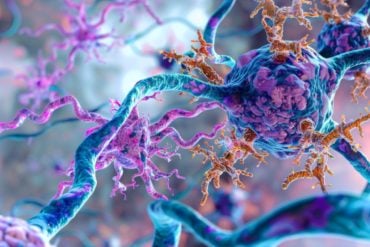Summary: he recollection and processing of childhood abuse or neglect can significantly impact mental health in adulthood, more than the experiences themselves.
The research revealed that self-reported experiences of early maltreatment correlated with a higher number of depressive or anxiety episodes later in life, even when compared to individuals with official records of maltreatment but no retrospective recall.
The findings underscore the importance of clinicians considering patients’ recollections of abuse or neglect for early identification and intervention. It also opens up avenues for interventions that help manage memories of childhood trauma to prevent future emotional issues.
Key Facts:
- Young adults who self-reported experiences of childhood maltreatment had more instances of anxiety or depression over the next decade, compared to those without such memories.
- Participants with official maltreatment records but no recollection of these experiences displayed similar emotional health patterns as those without any history of abuse.
- The association between self-reported childhood maltreatment and future emotional disorders was partially due to the participants’ existing and past mental health, suggesting that emotional disorders could negatively bias memories.
Source: King’s College London
New research from the Institute of Psychiatry, Psychology & Neuroscience (IoPPN) at King’s College London and City University New York, published today in JAMA Psychiatry, has found that the way childhood abuse and/or neglect is remembered and processed has a greater impact on later mental health than the experience itself.
The authors suggest that, even in the absence of documented evidence, clinicians can use patients’ self-reported experiences of abuse and neglect to identify those at risk of developing mental health difficulties and provide early interventions.
Researchers conducted a large longitudinal study following 1,196 participants to age 40 years to investigate how experiences of childhood abuse and/or neglect (maltreatment) impact the development of emotional disorders in adulthood.
The study found that young adults who retrospectively self-reported experiences of childhood maltreatment before age 12 had a greater number of depressive or anxiety episodes over the subsequent decade than those who did not remember maltreatment, even if they had an official court record.
In contrast, participants who had an official record of childhood maltreatment, but no retrospective recall of the experience, had a similar number of emotional disorder episodes in adulthood as those with no experience of maltreatment.
Andrea Danese, Professor of Child & Adolescent Psychiatry at King’s IoPPN and joint author of the study, said: “Our study reveals that how a person perceives and remembers experiences of childhood abuse or neglect has greater implications on future emotional disorders than the experience itself.
“The findings show that, even in the absence of documented evidence of childhood maltreatment, clinicians can use information provided by their clients to identify those at greater risk for subsequent mental health difficulties.
“The findings also suggest that early interventions that help cope with memories of abuse and/or neglect may prevent emotional problems later on.”
Participants were interviewed about their self-reported retrospective experiences of childhood maltreatment and their current and past mental health. They were then re-interviewed to measure the course of depression and anxiety symptoms.
Further analyses revealed that the association between self-reported experiences of childhood maltreatment and a greater number of subsequent anxiety and depression episodes was partly explained by participants’ current and past mental health, which was reported during their first interview.
The authors explain that this could be because emotional disorders can negatively bias memories, making participants’ more likely to recall negative events.
Professor Danese said: “A better understanding of how memories of child maltreatment are maintained and exacerbated over time, and of how the memories affect daily functioning, could provide new insights to develop effective interventions.”
This work is part of the King’s Maudsley Partnership for Children and Young People, a unique collaboration between specialist clinicians from the South London and Maudsley NHS Foundation Trust and leading academics at King’s College London to find new ways to predict, prevent and treat mental health disorders in children and young people.
The Partnership will be based in the new Pears Maudsley Centre which will be home to Child and Adolescent Mental Health Services (CAMHS) inpatient and outpatient services and clinical research facilities, set to open in 2024.
Funding: The research was supported by the National Institute of Mental Health, Eunice Kennedy Shriver National Institute of Child Health and Human Development, National Institute on Drug Abuse, National Institute on Alcohol Abuse and Alcoholism, National Institute on Aging, National Institute of Justice, Doris Duke Charitable Foundation, Medical Research Council and National Institute for Health and Care Research (NIHR) Biomedical Research Centre at South London and Maudsley NHS Foundation Trust and King’s College London.
About this mental health and childhood trauma research news
Author: Amelia Remmington
Source: King’s College London
Contact: Amelia Remmington – King’s College London
Image: The image is credited to Neuroscience News
Original Research: Closed access.
“Associations Between Objective and Subjective Experiences of Childhood Maltreatment and the Course of Emotional Disorders in Adulthood” by Andrea Danese et al. JAMA Psychiatry
Abstract
Associations Between Objective and Subjective Experiences of Childhood Maltreatment and the Course of Emotional Disorders in Adulthood
Importance
A history of childhood maltreatment is associated with an unfavorable course of illness for emotional disorders. However, the origins and mechanisms underlying these associations are unknown.
Objective
To examine the relative associations of objective and subjective measures of childhood maltreatment and continuity in psychopathology with the course of emotional disorders in adulthood.
Design, Setting, and Participants
This prospective cohort study followed up until age 40 years participants residing in a metropolitan county of the US Midwest with substantiated records of childhood physical and sexual abuse and/or neglect between 1967 and 1971 and a demographically matched group of participants experiencing no abuse or neglect in childhood. The collected data were analyzed between October 2021 and April 2022.
Exposures
The objective experience of childhood maltreatment before age 12 years was prospectively measured through official court records, whereas the subjective experience was measured through retrospective self-report at a mean (SD) age of 29 (3.8) years. Current and previous lifetime psychopathology was also assessed at a mean age of 29 (3.8) years.
Main Outcomes and Measures
Symptoms of depression and anxiety were measured at mean (SD) ages of 39.5 (3.5) and 41.2 (3.5) years using Poisson regression models.
Results
In a cohort of 1196 participants (582 [48.7%] female and 614 [51.3%] male) followed up to age 40 years, those with objective plus subjective measures of childhood maltreatment had a greater number of subsequent follow-up phases with depression or anxiety than controls (depression: incidence rate ratio [IRR], 2.28 [95% CI, 1.65-3.15]; anxiety: IRR, 2.30 [95% CI, 1.54-3.42]), as did those with subjective-only measures (depression: IRR, 1.49 [95% CI, 1.02-2.18]; anxiety: IRR, 1.58 [95% CI, 0.99-2.52]). In contrast, participants with objective-only measures did not have a greater number of follow-up phases with depression or anxiety (depression: IRR, 1.37 [95% CI, 0.89-2.11]; anxiety: IRR, 1.40 [95% CI, 0.84-2.31]). Current and lifetime psychopathology measured at the time the subjective experience was assessed explained its association with a later course of emotional disorders in participants with subjective-only measures but not in those with objective plus subjective measures.
Conclusions and Relevance
In this cohort study, the associations seen between childhood maltreatment and poor course of emotional disorders over the subsequent decade were largely attributable to the subjective experience of maltreatment, which was partly explained by continuity in psychopathology. Modification of the subjective experience of childhood maltreatment could improve the longitudinal course of emotional disorders.








